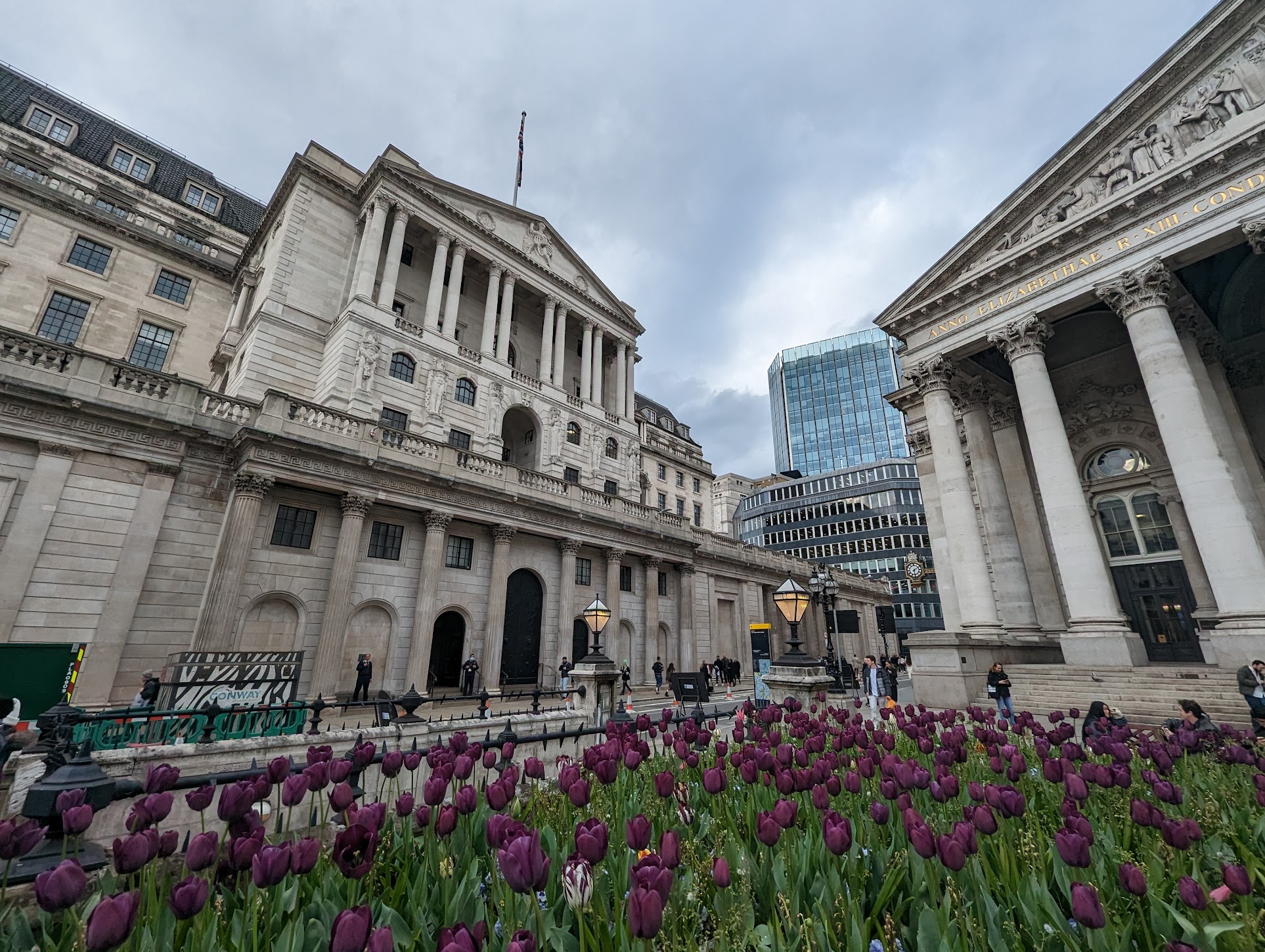BoE marks turning point with base rate reduced to 5%

The Bank of England building (credit: George Iordanov-Nalbantov)
The Bank of England’s Monetary Policy Committee (MPC) has voted to reduce the base interest rate by 0.25 percentage points to 5%.
The decision passed with a 5–4 majority vote, with four members favouring a further rate hold. Jill Mackay, savings specialist at Scottish friendly, highlights this caution saying rates have “risen like a rocket”, but will now likely “fall like a feather”.
The rate reduction follows inflation meeting the 2% target in May and June. However, the MPC expects inflation to rise to around 2.75% in the latter half of the year due to the fading impact of last year’s energy price declines.
Ms Mackay said: “The peak of the base rate lasted just shy of one year, having risen meteorically in 2022 and 2023 in order to quell inflation.
“The cut is good news for households under mortgage pressure but will be bad news for savers who will begin to see their interest earnings slashed.”
She continued: “With the economy growing better than expected, wages rising and employment still relatively robust, the bank will be keen to take a softly-softly approach in order to not reignite inflation. Where its neutral rate lies is an open question, but it will take time to arrive at.
“For households with mortgages this is modestly good news. But for savers it is a potential issue now for cash, especially seeing as easy access rates will be sensitive to cuts. For those considering their long-term savings plans it might be worth taking a fresh look at areas such as investments in order to give their funds a better opportunity for growth.”
Laura Suter, director of personal finance at AJ Bell, said: “Today’s decision was finely balanced, with around 60% expectation that rates would be cut ahead of the meeting. And it looks as if that fine balance carried its way into the decision room, with five members of the MPC voting for a cut and four voting to keep rates at 5.25%.
“In the end it appears the fact inflation has been on target for two months, wage growth has ticked down, services inflation has dropped and there are questions about the path for future growth in the economy all meant that now was the time to cut.”
She noted: “The rate cut today is more symbolic than material, as a 25 basis point cut is not going to have a dramatic impact on anyone’s finances.
“Mortgage rates will drop a bit, the 643,000 people on a tracker mortgage will see a slight reduction in their monthly payments and savers might see a small drop in their savings rates, but the bigger impact of the cut is that it fires the starting gun for the rate cutting cycle.
“People will be buoyed by the fact interest rate hikes are behind us and that after a year of rates being over 5% they have finally been cut.
“But we shouldn’t get too excited. There is no expectation that today signals the start of a series of rapid and chunky cuts to rates, instead the Bank is likely to make one more small cut this year and take a wait-and-see approach each time. The bank itself has cautioned that there are a number of factors that could change the data and turn the die against future rate cuts.”
Ms Suter concluded: “The other big factor looming is the new government’s first Budget at the end of October, which could have a significant impact on a number of the key data points that the Bank is guided by.
“Clearly the direction of travel is tax increases, as confirmed by chancellor Rachel Reeves this week, so there’s limited chance of big giveaways that would cause inflation to spike again. But the Bank will factor in the fallout of any policy decisions into its forecasting for the UK economy and the future direction of rates.”








